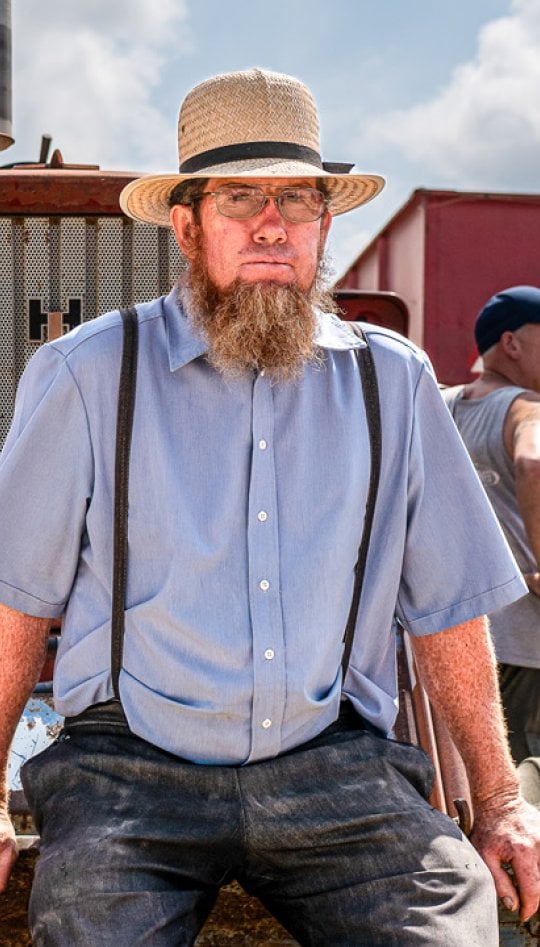
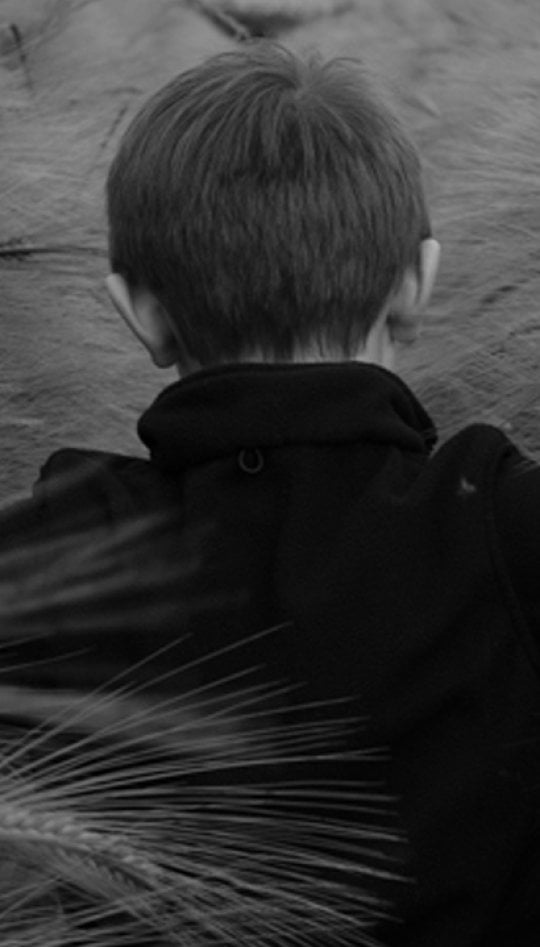
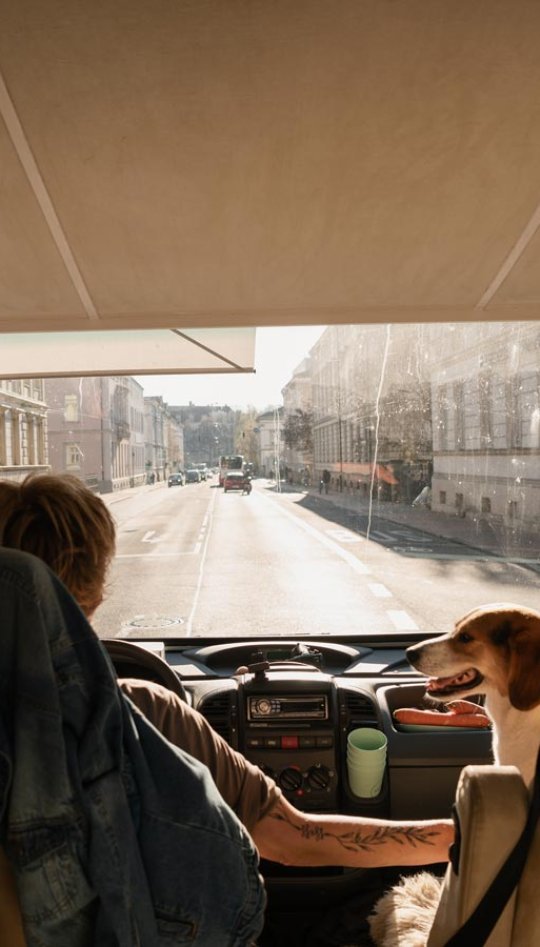
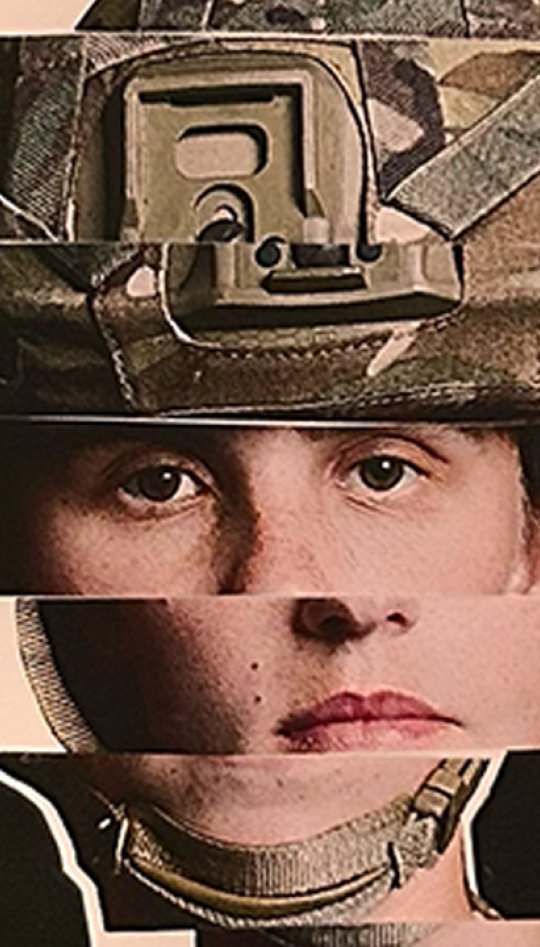
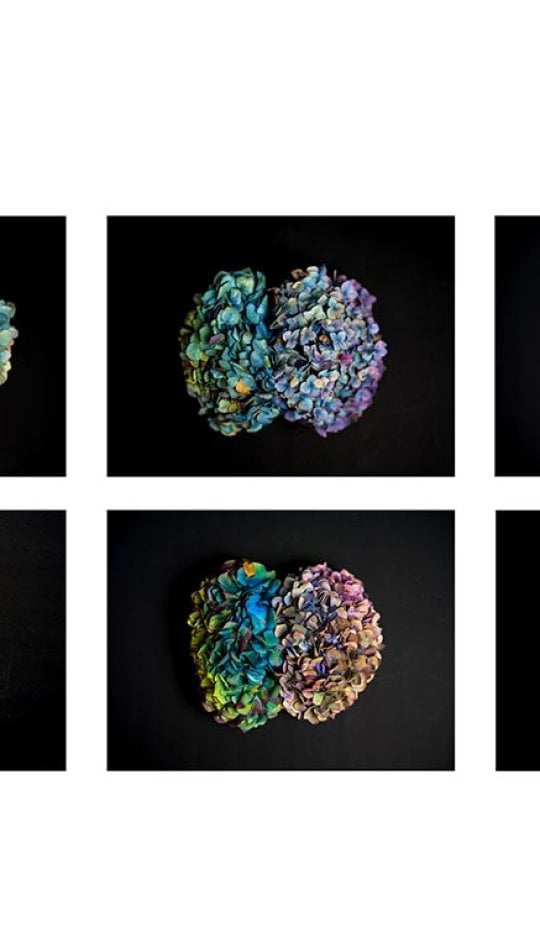
Photography MA (Online)
Become an accomplished and innovative image maker.
Course overview
Push your practice in bold and experimental directions on Falmouth’s online Photography MA. Taught by award-winning lecturers and supported by a global community of practitioners, you'll explore photography’s role in a rapidly changing world, from sustainability and circular design to ethics, diversity and social responsibility.
With over 120 years of creative heritage and more than six decades since Falmouth first began teaching photography, this online master’s degree draws on a rich tradition of innovation and excellence that has shaped generations of image-makers.
Through your experiences on this course, you’ll develop advanced creative, technical and professional skills while interrogating global contexts and experimenting with new materials, digital platforms and publishing methods.
By the time you graduate, you’ll have developed a sustainable, future-focused practice that expands the reach and impact of your work to new audiences, communities and markets.
Why study this course at Falmouth?
- Join Falmouth’s renowned Institute of Photography from your own location on an established course designed specifically for online study
- Explore photography’s role in addressing today’s most urgent global issues such as sustainability and ethical practice, diversity and inclusivity.
- Collaborate on real-world briefs set by external clients with a global community of creative practitioners, developing essential professional skills
- Develop advanced creative, technical and research skills that will underpin your career
- Learn to create images and projects aligned with circular and sustainable principles that promote long-term creative and environmental resilience.
- Expand your learning and your professional network through our guest lecture series and optional in-person events
Top image credit: student work by Phil Roeder, Sarah Young, Chiara Bellamoli, Leah Jones, and Geoffrey Bird
Start dates: January / May / September
(Three intakes per year)
You can apply for your chosen course route and start date below:
May 2026:
September 2026:
January 2027:
As part of our continual improvement processes, this course is currently undergoing a programme of updates, which do not fundamentally change the curriculum. Use the selector below to view course information for January and May 2026, or the updated version of the course from September 2026.
Course details
On this dynamic online Photography master’s, you will create photographic bodies of work that interrogate the world around you with increasing sophistication and critical depth. Supported by industry-active lecturers, you will refine your interests as a practitioner through working on a series of projects, strengthening your technical and visual skills whilst learning more about your subject specialism and developing your own, independent critical perspective.
The four taught modules allow you to interrogate your practice from distinct angles, expanding your knowledge and skills and encouraging you to experiment and take creative risks with your photography. Culminating in a Final Major Project, you will learn how to express your creative identity with confidence and purpose.
Modules
The modules have been specifically designed to be studied in a non-linear order, with the order in which you’ll study the modules depending on when you begin the course.
MA
You will need to complete four 30-credit modules and one 60-credit Major Project (180 credits in total). All modules on the course are compulsory and must be passed in order to complete the award.
From module information to course aims and assessment criteria, discover the full course details for the MA.
PGDip
You will need to complete four 30-credit modules (120 credits in total), and will not complete a Major Project.
From module information to course aims and assessment criteria, discover the full course details for the PGDip.
Module details
This module enables you to locate your practice within the broad contexts of professional contemporary photography.
You will consider the importance of research in both academic and industry contexts, and critically reflect on core themes in contemporary visual culture.
Through discursive activities with staff and peers, as well as self-directed research and personal reflection, you will analyse your practice in relation to specific themes and articulate your practical and conceptual intentions as an image-maker.
(30 credits)
You will be introduced to the themes and debates that are fundamental to the study and consumption of imagery and will increase your understanding of how contemporary practice is enriched through critical and theoretical contextualisation.
You will consider your own practice in relation to historical, philosophical, and ethical perspectives around visual culture, helping you develop an informed and sophisticated photographic practice.
(30 credits)
This module considers the myriad ways in which photography can be presented, and how its form influences how it is received and understood by audiences.
You will explore the many creative strategies involved in the production, resolution, and publication of photographic work, and consider the possibility of interdisciplinary approaches in the making and presentation of your own creative output. Alongside this you’ll consider how your practice and research connects with the broader social, political and ecological landscape, and begin to engage new audiences with your work.
As you study, you’ll devise strategies and workflows that are conscious of material consumption and work towards professional, and ecological and environmental sustainability.
(30 credits)
This module strives to increase your understanding and appreciation of the roles, relationships, and responsibilities that can play a major part in progressing and sustaining your creative practice.
As part of this, you will be encouraged to undertake commissions and work placements during this module, and to devise or engage in photography and visual arts initiatives relevant to your work.
You’ll also have the opportunity to collaborate on a live brief with a small group of peers. These briefs will be set by clients and allow you to gain experience with real industry challenges.
(30 credits)
This module provides you with the chance to produce a critically and professionally informed research project and deliver it to a public audience.
You will submit a proposal outlining a scheme of work and the critical contexts surrounding your project. You’ll then work continuously on the module over the course of two study blocks, working closely with your peers and supported by your supervisor.
The project will be your opportunity to demonstrate increasing autonomy in respect of your research capabilities.
You will also continue to benefit from the programme’s ongoing series of guest lectures by leading contemporary practitioners and industry experts.
(60 credits)
As part of a process of re-approval this course is currently undergoing a programme of updates and improvements which do not fundamentally change the curriculum, effective for all students studying with us from September 2026. If you join this course in January or May 2026, you will be moved to the updated version from September 2026 which aims to enhance your student experience. If you have any questions about these changes, or wish to withdraw your application, please contact your dedicated Course Advisor.
We regularly review course and module content to ensure our students receive a high-quality and rewarding academic experience. As such, there may be changes made to the curriculum which are not immediately reflected in the content displayed on our website. Optional modules may be updated to maintain the best experience. Any students or applicants affected will be informed of approved changes directly.
This course is for you if...
1. You already have some photographic skills and confidence in some areas of practice.
2. You want to learn how to use photography to explore complex ideas, subject and tell stories more effectively.
3. You have professional experience with photography and/or the creative industries, or can demonstrate a commitment to photography and visual culture.
4. You want to learn from others, challenge yourself, and are ready to be pushed out of your creative comfort zone.
Our students and graduates
Meet our online Photography community

"The course was life-changing to my artistic practice and is absolutely responsible for helping me find my artist voice to tell my story."
Jacy Wilkes, graduate

"The MA allowed me to develop work that I’m keen to share and gave me the confidence to pursue professional opportunities."
Chris Finnegan, graduate

Got questions? Chat to Kiefer, your Course Advisor
Get in touchStories from our community
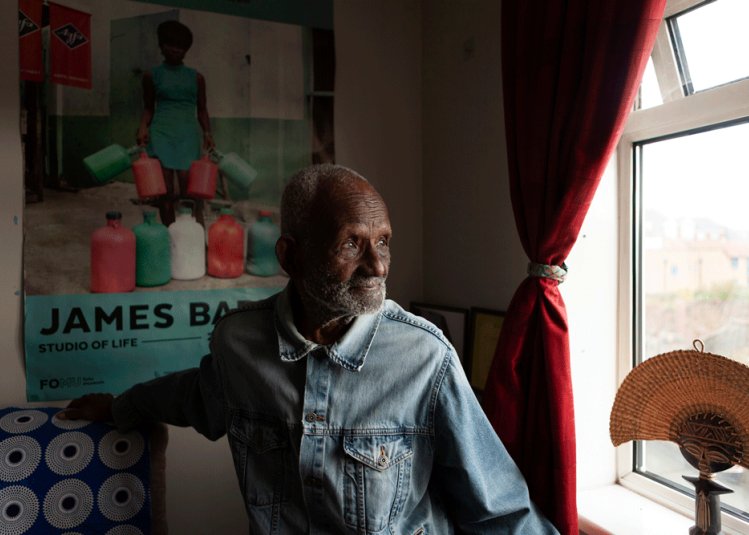
Photography lecturer shoots editorial commission for The New York Times
11 February 2026
BA(Hons) Photography (Online) lecturer, Celine Marchbank, has recently captured the 96-year-old Ghan...
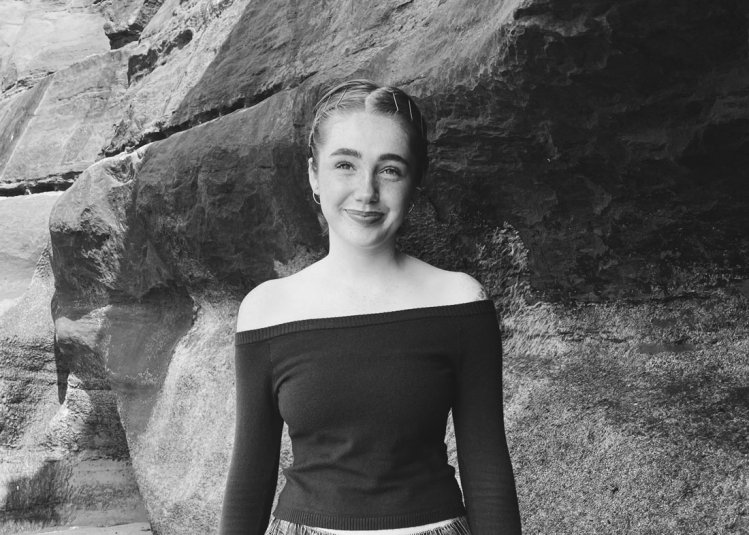
Falmouth graduate wins Portrait of Britain for second year running
10 February 2026
Niamh Shergold discusses the story behind her winning image.
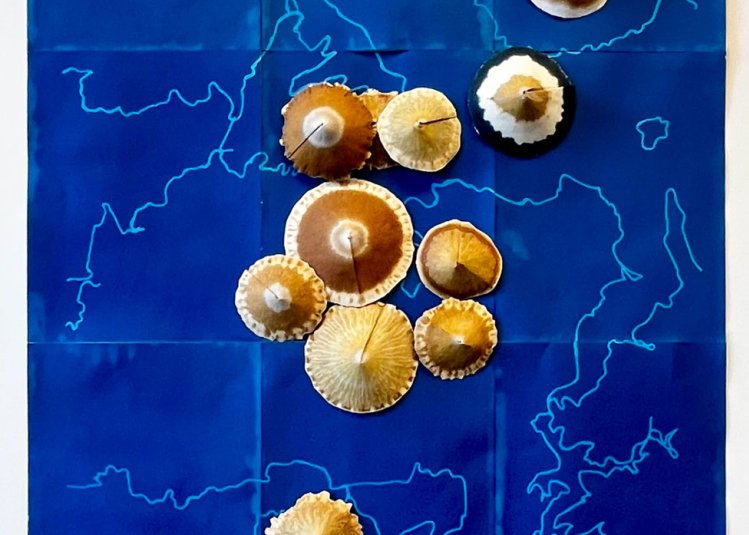
'Volcanic Field Map' by Linda Jarrett.
How an MA Photography project sparked change in emergency planning
05 February 2026
Linda Jarrett discusses her final major project on Auckland's volcanic risk.
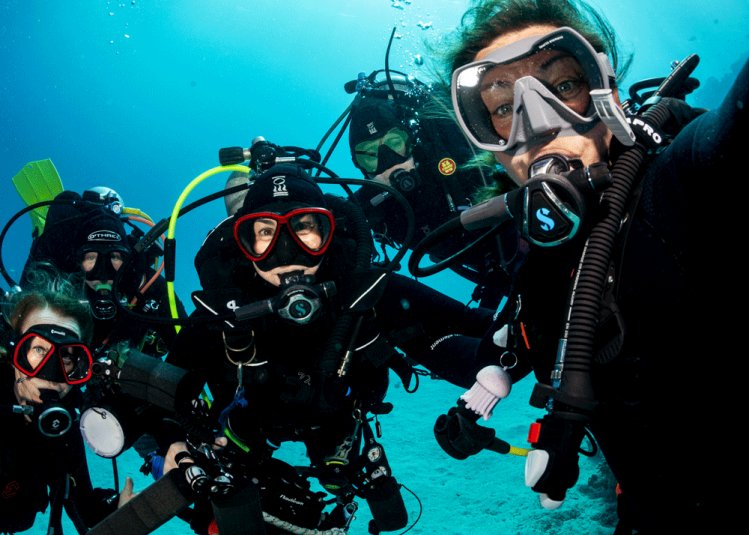
Photography students capture fascinating marine life in Egypt on annual diving trip
03 February 2026
BA(Hons) Marine & Natural History Photography students recently got the chance to dive into the Red ...

Credit: William Bunce
Still life photographer on fusing creativity with technical excellence
13 January 2026
Since graduating from Falmouth’s BA(Hons) Photography degree in 2010, William Bunce has forged a s...
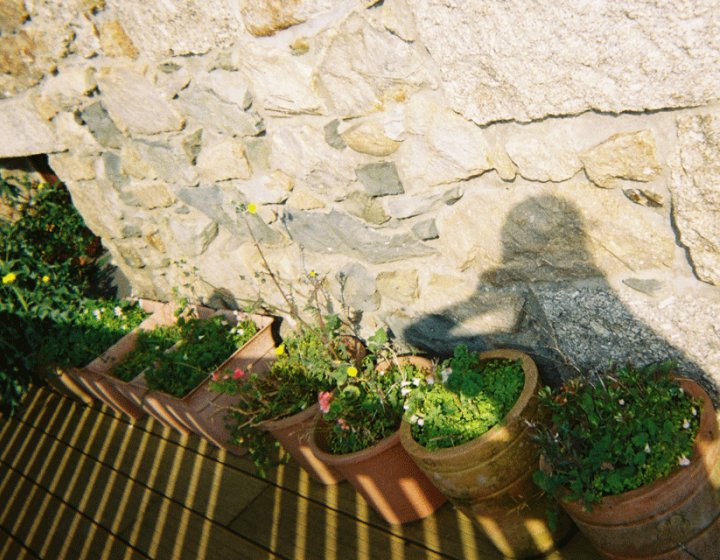
Falmouth lecturers collaborate with West Cornwall Women’s Aid to facilitate exhibition in Penzance
24 November 2025
Unsettled is an upcoming exhibition that showcases the strength and resilience of women rebuilding t...
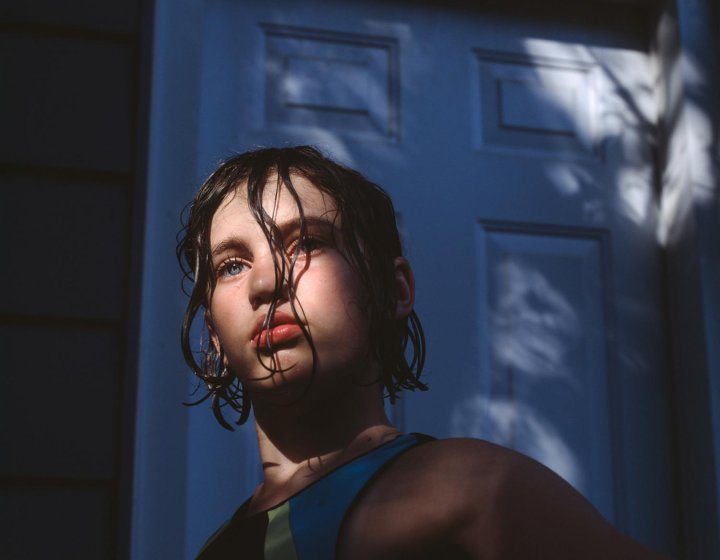
From the series 'All Quiet on the Home Front' by Colin Pantall
Falmouth Photography Lecturer explores fatherhood in Italian exhibition
20 October 2025
Colin Pantall's exhibition, 'All Quiet on the Home Front' explores fatherhood, landscape and identit...
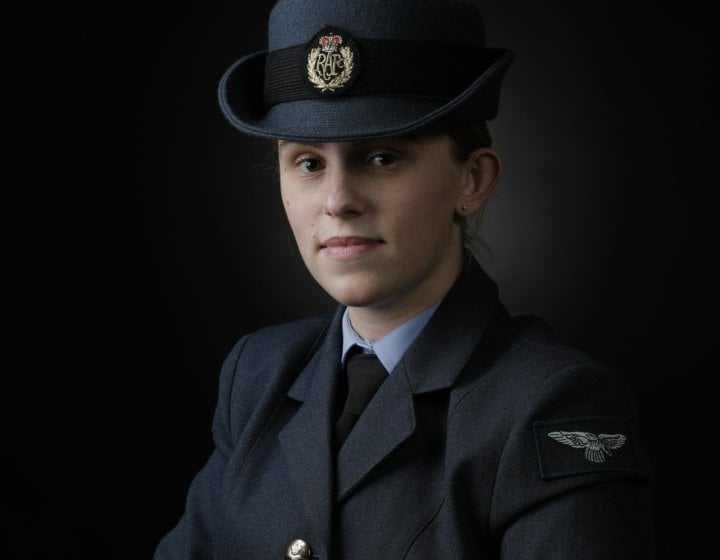
RAF Photographer on balancing military service with a master’s degree
03 October 2025
Read how Leah Jones combined military deployment with a master's degree.
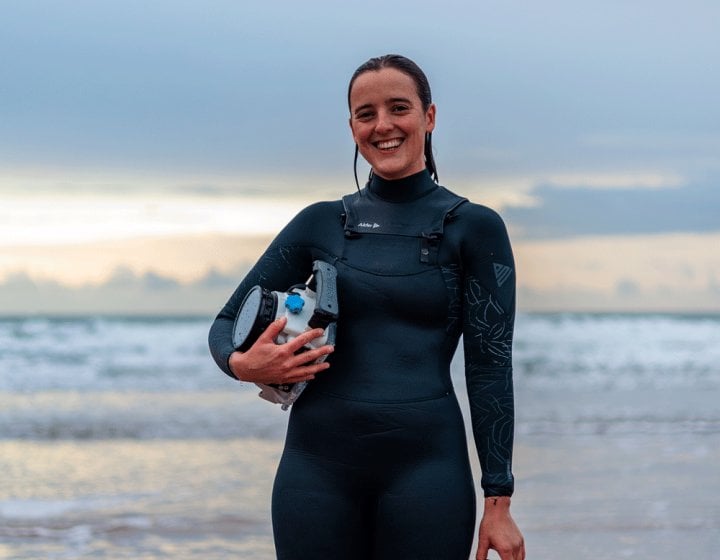
Falmouth alumna becomes the first female editor of long-standing surf magazine
23 September 2025
After feeling creatively influenced by Falmouth’s deep connection with the sea, nature and its com...
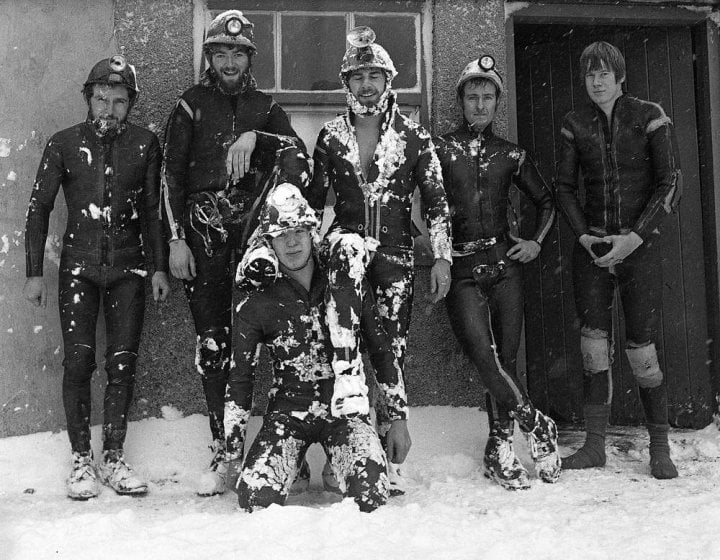
Eldon Pothole Club at Peakshill Farm, 1971
Falmouth student documents the eccentric world of Derbyshire cavers
31 July 2025
Specialising in portrait photography, Jon has turned his lens on the Eldon Pothole Club.
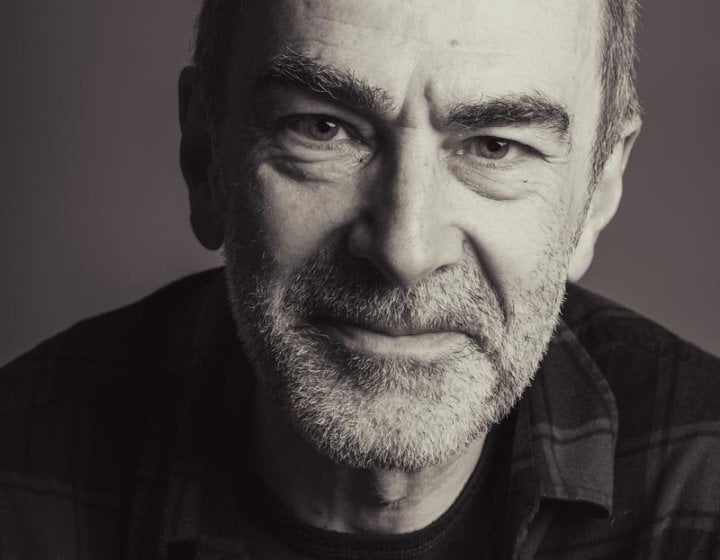
Image by Seamus Flanagan
How postgraduate study gave one mature student a new focus
22 July 2025
Will shares how he rediscovered his creative voice through returning to higher education later in li...

Work by Cody Murray
Photography student secures multiple commissions in the haircare industry
26 June 2025
Cody Murray has recently worked with haircare brand WAHL and bagged an editorial feature in Tribu-te...
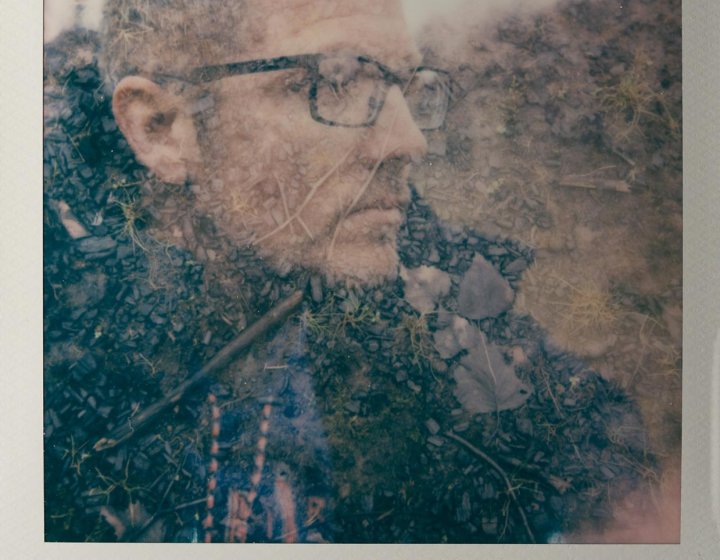
Work by Dean Cook
Exploring neurodiversity through Polaroid photography
25 June 2025
Read how one Photography student used his course to explore a deeply personal project.
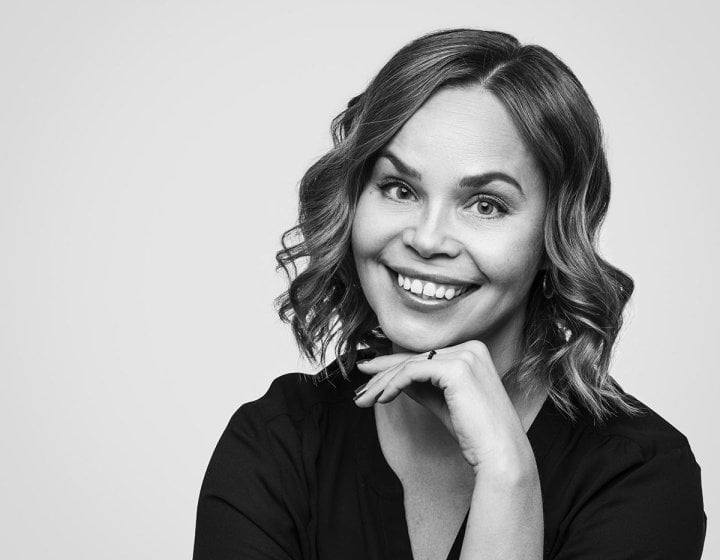
Graduate shortlisted for Photo London x Hahnemühle Student Award
13 May 2025
Photography MA (Online) graduate, Nina Kostamo Deschamps is already making her mark in the field.
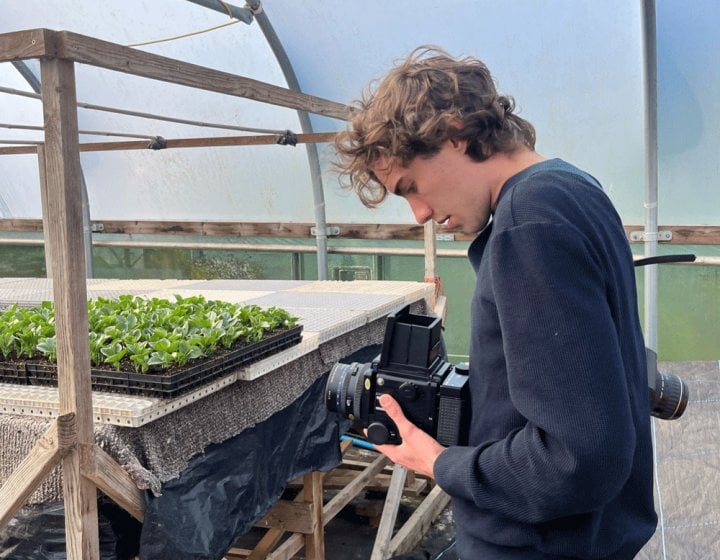
Documenting the sustainability of farming: Photography BA student Joe Day
06 May 2025
After visiting Yeo Valley Organic, The Milk Stand at Kingston Seymour Farm, and Dowstall Farm, secon...
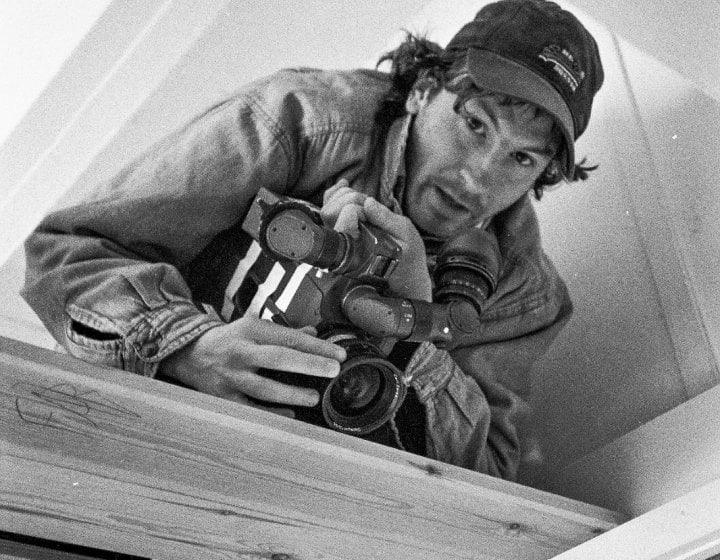
The technician and photography graduate taking music videography by storm
23 April 2025
Since graduating from Photography BA(Hons) in 2016, Charlie Fairbairn has forged an eclectic caree...
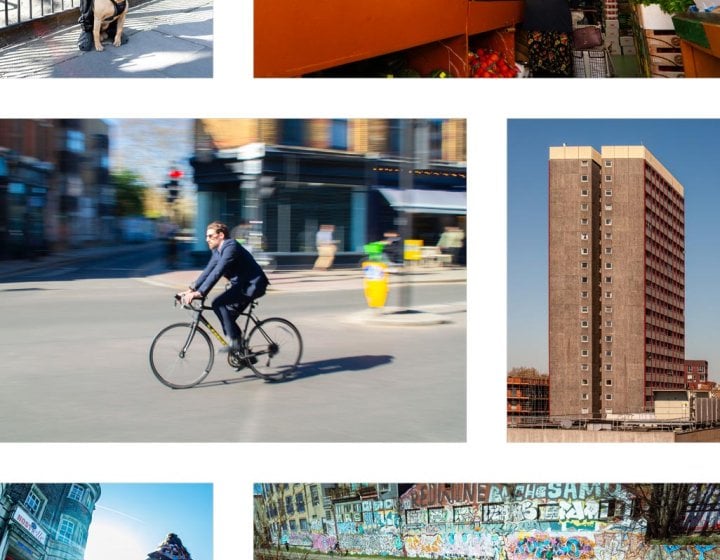
Students photograph the hidden heart of Bethnal Green in London exhibition
23 April 2025
Documentary & Editorial students had just 24 hours to document Bethnal Green's people and culture.

Image: Jennifer Forward-Hayter
Course Leader and graduate curate photography symposium at Photo|Frome
14 April 2025
Jesse Alexander, Course Leader of Photography MA (Online), and Phil Hill, a graduate of the same pro...
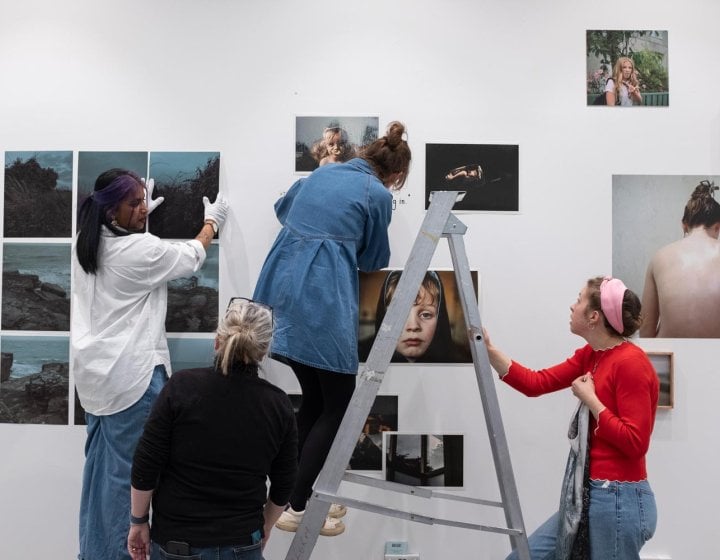
Image by Sylwia Ciszewska-Peciak
Photography graduate Dawn Rodgers exhibits at FORMAT Festival
11 April 2025
Dawn Rodgers has recently showcased her work as part of the renowned East Meets West Masterclass Pro...
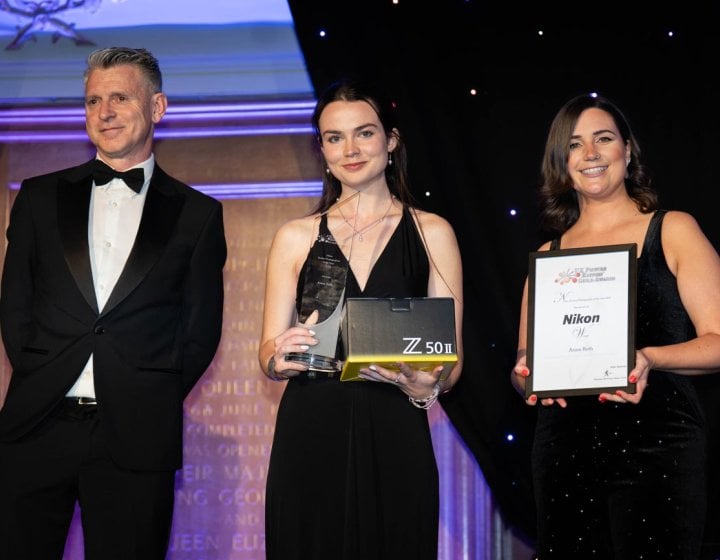
Falmouth Student Anna Roth Wins Nikon Student Photographer of the Year
08 April 2025
Third-year Press & Editorial Photography student Anna Roth has been named Nikon Student Photographer...
Connect with our course community
Landings student exhibition
Each year, students have the opportunity to come together in person for a series of workshops and events at Falmouth University. With access to our multi-million-pound photographic centre, they collaborate to curate Landings - a public exhibition at the Institute of Photography that brings together work from across the course.
Centred around research clusters such as Habitats, Practices of Care, Centres and Networks and Material Worlds, the exhibition offers students the chance to collaborate internationally, co-curate a live exhibition, and showcase their creative practice to a wider audience.
Landings is an exhibition that showcases work made by students on Falmouth University's Online Photography MA.
Learning and support
How will I study online?
You'll learn through a blend of recorded learning content, learning activities, guest talks, tasks and discussion forums, which you'll access via our dedicated virtual learning environment. This is also where you'll find all key documentation, get course announcements and access extensive learning resources.
Based on the total learning time for the Postgraduate online courses, an average study week can be up to 25 hours. As our online courses are intended to be flexible, the time required to study will vary based on the level of study, the module week, and individual learning pace.
You'll have weekly contact with faculty staff, and will be supported academically by Online Tutors throughout each module. If you need assistance with anything that isn't directly related to course material, a dedicated Student Advisor team will be on hand to help. You'll also have access to Falmouth University's excellent Employability Service.
Assessment methods
All assessments are taken and submitted online.
Assessment methods for the master's degree in Photography can typically include:
- Coursework assessment with no formal examinations
- Oral presentations
- Collaborations on live, client briefs
- Projects, individual reports and public presentations
- Dedicated easy-to-use virtual learning environment (VLE)
- Accessible online audio / visual content
- A Student Advisor to support you throughout your studies and access to our Student Support Services
- Access to our Employability Service
- 24/7 access to Falmouth's extensive online library of contextual books, journals and resources
- Access to online software tutorials at LinkedIn Learning
- Students' Union community
- Optional in-person events
- Invitation to attend alumni events
Although online students don't have access to on-campus facilities as part of the course, you can hire equipment and access facilities by paying a charge. Find out more about availability and prices here.
Your online study setup
To get the most out of your online studies with Falmouth, we recommend using a desktop or laptop computer with reliable internet access. This will enable you to fully experience our Virtual Learning Environment, which houses your course material, module videos and webinar recordings, discussion forums and more. Please note while a mobile phone or tablet can support you in your studies, they are not suitable as your primary means of engagement.
If you have any questions, our friendly course advisors are here to help.
Meet the team
Professional standards and practice are at the core of this online master’s course, which is delivered by a research-active academic team from the Institute of Photography at Falmouth University. There is a wide range of subject expertise within the team, and the ability to facilitate networking opportunities across the creative industries.
The course also benefits from the insight of photographers and other leading figures across the industry who contribute to our ongoing programme of Guest Lectures. Previous speakers include:
- Laia Abril
- Charlotte Cotton
- Geoff Dyer
- Julia Fullerton-Batten
- Nathan Jurgenson
- Kalpesh Lathigra
- Amak Mahmoodian
- Silvia Rosi
- Anastasia Samoylova
- Arpita Shah
- Vanessa Winship
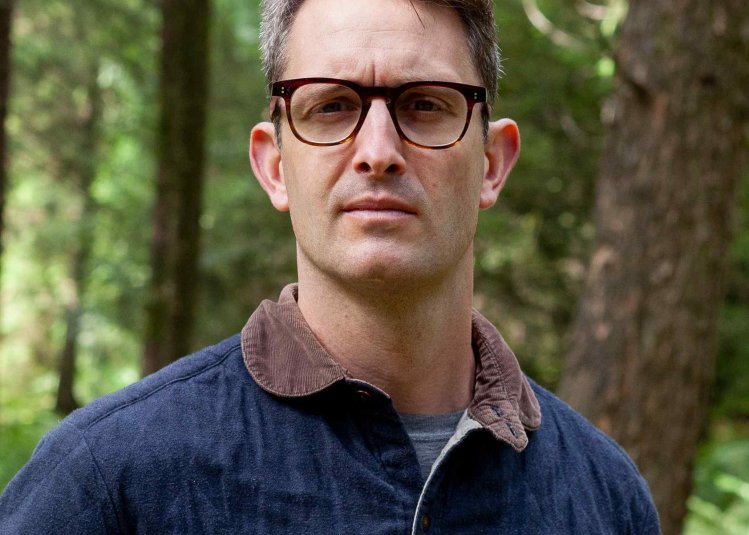
Jesse Alexander
Course Leader, MA Photography (Online)
Jesse Alexander is a photographer, educator and writer on photography based in Somerset, England. Wh...
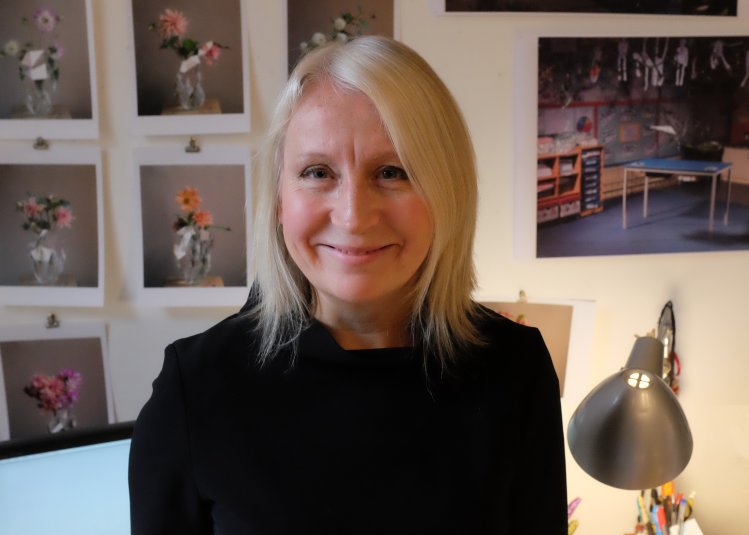
Dr Wendy McMurdo
Module leader, MA Photography
Wendy McMurdo is Module Leader for Final Project for the MA Photography at Falmouth. She is a widely...
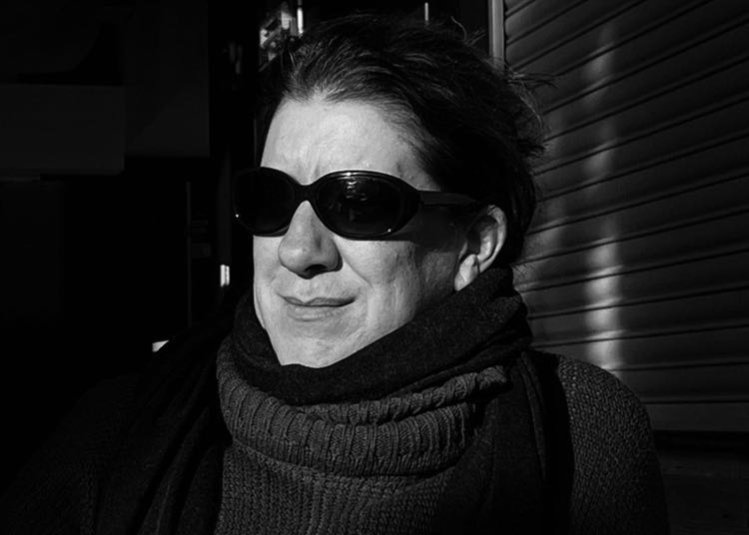
Dr Steph Cosgrove
Senior Lecturer
Steph is a Senior Lecturer at our Institute of Photography and has worked at Falmouth University for...
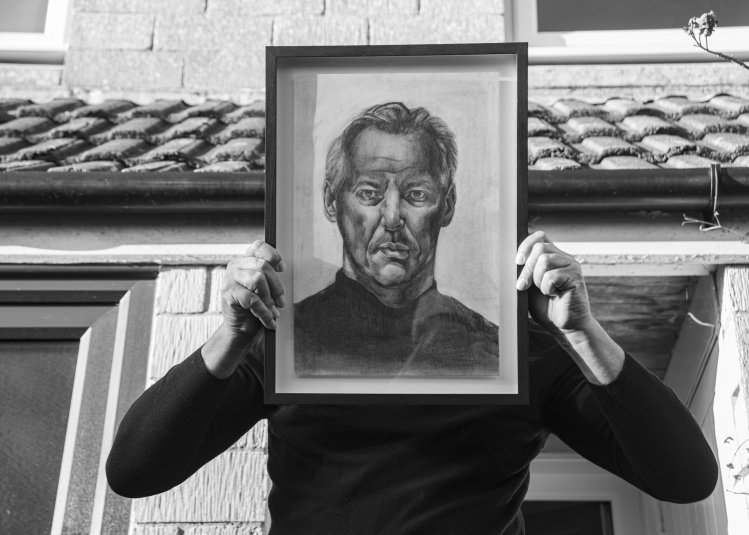
Colin Pantall
Lecturer, Photography MA
Colin Pantall is a writer, educator and photographer based in Bath. He has written for a range of...
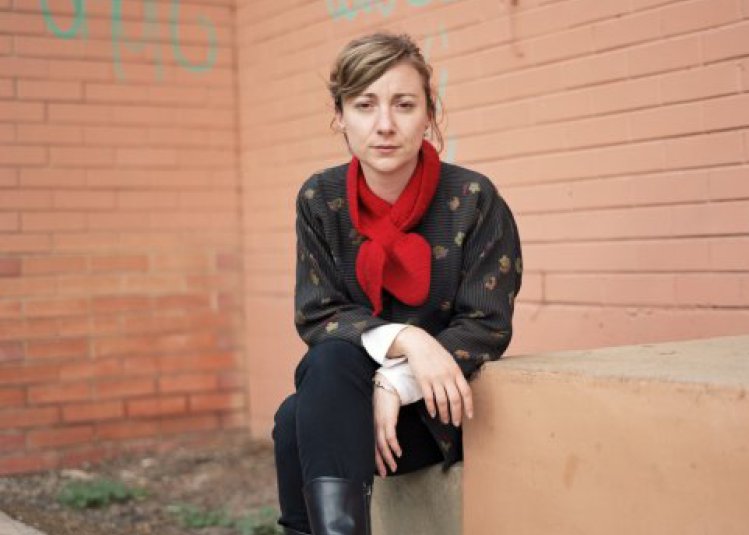
Georgia Metaxas
Lecturer & Module Leader, MA Photography (Online)
Georgia Metaxas is an artist and educator based in London, she is the Module Leader for Sustainable ...
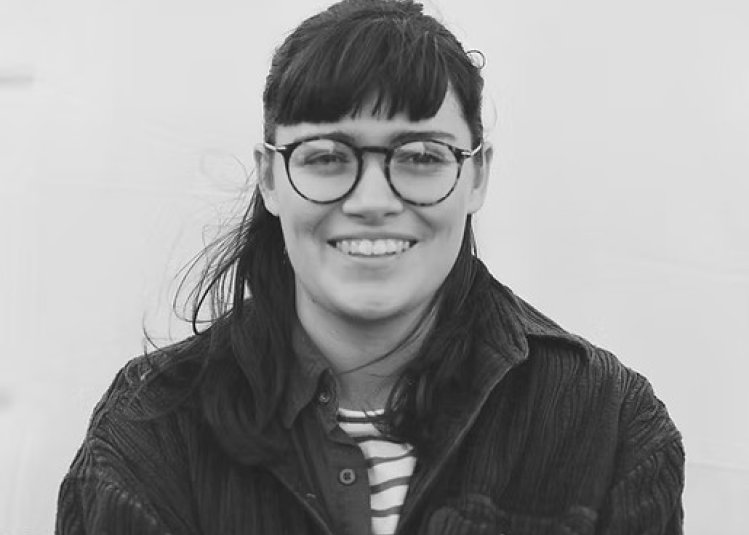
Kathryn Sainsbury-Wilkes
Stores Assistant
After growing up in Birmingham, Kathryn relocated to Cornwall in 2018 in order to study Marine and N...
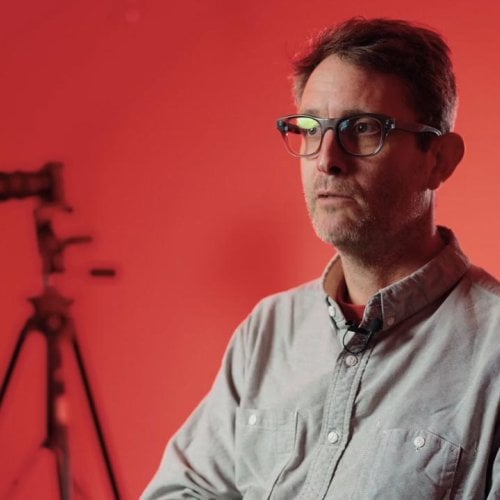
Meet your Course Leader, Jesse Alexander
We chatted to Course Leader Jesse Alexander about his rich industry experience, his dedication to online learning and his faith in the future of photography.
Read moreSome members of staff only teach on specific modules, and your course might not feature every staff member who teaches on the course.
Careers
Our graduates use the skills, network, and the portfolio they develop during the Photography MA to advance their careers in various ways: winning awards, commissions, bursaries and residencies; gaining new commercial clients; and securing permanent roles as photographers within industry.
You could go into roles such as:
- Self-employed photographic practitioner (e.g. social, commercial, editorial)
- Employed photographic practitioner and/or management (press, studio, industrial, retouching)
- Senior technical roles in industry (e.g. technical instruction, laboratory, retail)
- Senior roles within publishing (e.g. picture research and editing, management)
- Senior roles in arts administration, arts management, heritage and outreach
- Curatorship, art direction, gallerists
- Teaching, workshops and educational development roles
- Writing, criticism and arts communication
As a postgraduate course, most students will already be working with photography or media in some professional capacity and make use of the course to progress or diversify their careers in the photography industry. As an internationally recognised master’s degree, the award will make roles and careers outside of the creative industries accessible, too.
Some graduates explore careers in academia and further study at doctoral level.
While the course is designed with the career progression of its graduates in mind, the programme welcomes those who are taking the course primarily for personal development
In addition to the guidance offered by our tutors, you can also access our employability service throughout your studies, and for up to five years following graduation. Our expert team will help you identify potential opportunities in the UK or internationally, prepare for job interviews, advise you on starting up your own business, and more.

Meet graduate Rehab Eldalil
Discover how the Photography MA course helped shape Rehab Eldalil’s creative vision and launch her extraordinary career as an award-winning documentary photographer.
Read the interviewHow to apply
Speak to us about the course
If you'd like to talk to an Advisor about this course or your application, get in touch with us via the form below.
Apply now
Ready to apply for postgraduate study? We have three start dates a year: January / May / September. Select the start date you'd like to apply for in the drop-downs below and then click the relevant apply button to begin.
You can apply to begin your studies in May 2026 by selecting the relevant course route below:
You can apply to begin your studies in September 2026 by selecting the relevant course route below:
You can apply to begin your studies in January 2027 by selecting the relevant course route below:

How to apply for our Online Degrees
Find out moreQualifications
An honours degree or Level 6 equivalent qualification is desirable. However, candidates without a degree or formal qualification are still encouraged to apply. If you'd like to discuss our entry requirements, speak to an advisor.
Portfolio
A digital portfolio of your current photographic practice. The portfolio should indicate both your technical aptitude and the quality and sophistication of your practice.
You shouldn’t attempt to encompass a range of styles and genres of photography, but rather try to give the admissions team a sense of your practice specialisms and your interests as a practitioner.
You should title or briefly caption each image in your portfolio, explaining - if necessary - how the image is indicative of your practice and why you have selected it.
If you'd like to talk to us about your application, get in touch.
If English is not your first language you will need to meet the same standard which is equivalent to the IELTS Academic 6.5 overall score, with at least 5.5 in Reading, Writing, and Listening, and a minimum of 6.0 in speaking.
We also accept a range of other recognised English language qualifications. You can visit our English Language Requirements page for more information.
For more information about equivalent international qualifications or English language requirements please contact our friendly Course Advisors.
This course has three intakes per year: January, May and September.
| Academic start date* | Application deadline | Early Bird Discount deadline |
|---|---|---|
| 26 May 2026 | 6 May 2026 | 30 March 2026 |
| 21 September 2026 | 7 September 2026 | 3 August 2026 |
| 18 January 2027 | 8 January 2027 | 23 November 2026 |
Please note:
*Virtual Welcome Week begins the week before the academic start date. During this time, our Student Advisor team will host Welcome Webinars and be in touch with practical information on how to study online.
An Early Bird discount is available for early applications. Currently the scheme offers up to £600 off MA tuition fees: £300 if you apply by the Early Bird discount submission deadline, and a further £300 off your tuition fees if you receive an offer and within two weeks you accept the place and pay the acceptance fee. Both these payments would be applied to your final fee instalment. Please note the discount amount is subject to change for future intakes.
| Early Bird discount submission deadline | Academic start date |
|---|---|
| 24 November 2025 | 19 January 2026 |
| 30 March 2026 | 26 May 2026 |
| 3 August 2026 | 21 September 2026 |
To discuss all our discount opportunities, contact an advisor.
Fees, costs & funding
Tuition fees
At Falmouth University, you can choose to pay your tuition fees for our online postgraduate courses up front, or in instalments.
MA/MSc course (2 years part time)
- Total fee £12,150 (incl. acceptance fee)
- Two instalments of £6,075, paid at the start of each year, or six instalments of £2,025 at the start of each study block.
PGDip course
- Total fee £7,921 (incl. acceptance fee)
- Four instalments of £1,980.25 at the start of each study block.
Your acceptance fee is deducted from your first instalment. Any discounts you have been awarded are deducted from your final instalment(s).
At Falmouth University, you can choose to pay your tuition fees for our online postgraduate courses up front, or in instalments.
MA/MSc course (2 years part time)
- Total fee £12,150 (incl. acceptance fee)
- Two instalments of £6,075, paid at the start of each year, or six instalments of £2,025 at the start of each study block.
PGDip course
- Total fee £7,921 (incl. acceptance fee)
- Four instalments of £1,980.25 at the start of each study block.
Your acceptance fee is deducted from your first instalment. Any discounts you have been awarded are deducted from your final instalment(s).
Tuition fees are set annually and are subject to review each year. The University may therefore raise tuition fees in the second or subsequent years of a course, in line with inflation and/or the maximum permitted by law or Government policy. Students will be notified of any changes as soon as possible.
The figures above don't include accommodation and living costs
Typical course costs
As part of studying MA Photography Online you will require:
Laptop/computer
You will need a laptop or computer with a webcam, microphone and speakers/headphones. You'll also need a good internet connection or a data allowance capable of supporting frequent video meetings and streaming.
Resources and materials
Although all assignments will be submitted digitally, you will need to manage your own resources and materials, reflecting your own style and practice.
This will depend on the technology, equipment and consumables that you use for your practice, or would like to experiment with. These will vary from student to student, but you should be prepared to be making practical work on a weekly basis throughout the course.
Photographic Equipment
There is no minimum technical requirement for the course: the camera and technologies that you use will entirely depend upon what is appropriate for your particular specialism, and what you have access to.
The majority of students work with digital SLR or mirrorless camera systems, although many work with film (in all formats) and camera-less technologies. The course encourages purchasing equipment second-hand, or borrowing where possible.
Workspace
We recommend, where possible, a dedicated workspace where you can complete coursework and participate in live meetings.
This does not need to be a dedicated, hired studio space; many students work from a quiet room in their homes, home offices or a communal workspace.
Adobe Creative Cloud
Depending on the mediums you choose to work in, you may require access to Adobe Creative Cloud. You may be eligible for discounted licenses through Adobe's education pricing and Falmouth University seeks to provide further discounts when possible. If any discounts are available, we will communicate these to you.
For more information please visit Adobe Creative Cloud.
Optional in-person events
You will be expected to cover your own travel, accommodation and subsistence costs to attend these events. Where ticketed activities are part of the event, such as festivals and fairs, you will also need to meet these costs.
There were no additional costs recommended for students joining this course in September 2025.

Early Bird discount available
Request informationFunding and scholarships for postgraduate students
There are loans, scholarships, awards, graduate discounts and alternative funding sources for domestic and international postgraduate students. Read about them on our Postgraduate Funding page.
Find out about funding
Course details
On this dynamic online Photography MA, you’ll create bold, thought-provoking work that pushes the boundaries of contemporary photography. Guided by industry-active lecturers, you’ll explore how social, political, cultural and theoretical contexts shape the way we create and consume images. Through a series of creative projects, you’ll strengthen your technical and visual skills, refine your specialism and develop a confident, independent voice as a photographic practitioner.
The four taught modules allow you to interrogate your practice from distinct angles, expanding your knowledge and skills and encouraging you to experiment and take creative risks with your photography. Culminating in an Independent Research Project, you will learn how to express your creative identity with confidence and purpose.
Modules
The modules have been specifically designed to be studied in a non-linear order, with the order in which you’ll study the modules depending on when you begin the course.
MA
You will need to complete four 30-credit modules and one 60-credit Independent Research Project (180 credits in total). All modules on the course are compulsory and must be passed in order to complete the award.
From module information to course aims and assessment criteria, discover the full course details for the MA.
PGDip
You will need to complete four 30-credit modules (120 credits in total), and will not complete the Independent Research Project module.
From module information to course aims and assessment criteria, discover the full course details for the PGDip.
Module details
In this module, you’ll explore how research and critical analysis underpin contemporary photographic practice. You’ll examine the relationship between theory and technique, developing a reflective and adaptable approach that strengthens your creative practice.
You’ll engage with photography as a global medium, expanding your perspective beyond traditional Eurocentric histories. Through lectures, set texts and discussions, you’ll explore how photography intersects with social, ecological and political contexts worldwide.
In this first stage, you’ll critically analyse your own creative practice to help refine your ideas and begin shaping the direction of your photographic research project.
(30 credits)
You’ll explore how ideas, critical themes and concepts can enrich your photographic work, connecting your practice to broader historical, philosophical and ethical perspectives.
Through lectures, webinars and discussions, you’ll engage with key themes in visual culture; from ways of seeing and subjectivity to the political nature of photography in relation to current global issues.
As you progress, you’ll reflect on how these ideas shape your own creative practice and research interests, building a more informed, critically engaged approach to your image making.
(30 credits)
This module explores how contemporary photographic work is produced and shared with the world.
You’ll experiment with different creative strategies, materials and processes, testing new ways to produce and present your work. You’ll also consider how the way in which your images are published or displayed shapes their meaning and impact.
You’ll examine how photography relates to economic, social and environmental sustainability, and develop approaches that question consumerism and promote circular, regenerative ways of making.
By the end of the module, you’ll have developed new strategies and workflows that strengthen both your creative practice and your awareness of photography’s wider impact.
(30 credits)
This module helps you explore what it means to work as a professional photographer in today’s creative industries. You’ll learn how collaboration, networking and partnerships with institutions, clients and peers can help sustain and grow your practice.
You’ll examine how your work connects with different audiences, communities and contexts, and consider the responsibilities that come with creative authorship.
A key part of the module is a live brief, where you’ll collaborate with your peers on real-world projects set by external clients. These industry challenges will help you apply your skills in professional settings, develop your confidence and demonstrate independence, initiative and professionalism.
(30 credits)
This final module is your opportunity to bring everything together, producing a professional and ethically informed body of work that showcases your creative practice.
You’ll begin by developing a detailed proposal, then refine your ideas, methodologies and conceptual approach with the support of your supervisor. Throughout, you’ll benefit from one-to-one tutorials, peer critiques, and industry insights from our ongoing guest lecturer programme and face-to-face events. Guest lectures are live, but always recorded and students can access the archive of past speakers on demand.
Your final project could take many forms, from an exhibition or installation to a publication, online project, public screening, talk or workshop. You’ll be encouraged to share your work publicly, gaining hands-on experience in planning and promoting an event, engaging audiences, and marketing yourself as a creative professional.
(60 credits)
We regularly review course and module content to ensure our students receive a high-quality and rewarding academic experience. As such, there may be changes made to the curriculum which are not immediately reflected in the content displayed on our website. Optional modules may be updated to maintain the best experience. Any students or applicants affected will be informed of approved changes directly.
This course is for you if...
1. You already have some photographic skills and confidence in some areas of practice.
2. You want to learn how to use photography to explore complex ideas, subjects and tell stories more effectively.
3. You have professional experience with photography and/or the creative industries, or can demonstrate a commitment to photography and visual culture.
4. You want to learn from others, challenge yourself, and are ready to be pushed out of your creative comfort zone.
Our students and graduates
Landings student exhibition
Each year, students have the opportunity to come together in person for a series of workshops and events at Falmouth University. With access to our multi-million-pound photographic centre, they collaborate to curate Landings - a public exhibition at the Institute of Photography that brings together work from across the course.
Centred around research clusters such as Habitats, Practices of Care, Centres and Networks and Material Worlds, the exhibition offers students the chance to collaborate internationally, co-curate a live exhibition, and showcase their creative practice to a wider audience.
Landings is an exhibition that showcases work made by students on Falmouth University's Online Photography MA.
Stories from our community

Photography lecturer shoots editorial commission for The New York Times
11 February 2026
BA(Hons) Photography (Online) lecturer, Celine Marchbank, has recently captured the 96-year-old Ghan...

Falmouth graduate wins Portrait of Britain for second year running
10 February 2026
Niamh Shergold discusses the story behind her winning image.

'Volcanic Field Map' by Linda Jarrett.
How an MA Photography project sparked change in emergency planning
05 February 2026
Linda Jarrett discusses her final major project on Auckland's volcanic risk.

Photography students capture fascinating marine life in Egypt on annual diving trip
03 February 2026
BA(Hons) Marine & Natural History Photography students recently got the chance to dive into the Red ...

Credit: William Bunce
Still life photographer on fusing creativity with technical excellence
13 January 2026
Since graduating from Falmouth’s BA(Hons) Photography degree in 2010, William Bunce has forged a s...

Falmouth lecturers collaborate with West Cornwall Women’s Aid to facilitate exhibition in Penzance
24 November 2025
Unsettled is an upcoming exhibition that showcases the strength and resilience of women rebuilding t...

From the series 'All Quiet on the Home Front' by Colin Pantall
Falmouth Photography Lecturer explores fatherhood in Italian exhibition
20 October 2025
Colin Pantall's exhibition, 'All Quiet on the Home Front' explores fatherhood, landscape and identit...

RAF Photographer on balancing military service with a master’s degree
03 October 2025
Read how Leah Jones combined military deployment with a master's degree.

Falmouth alumna becomes the first female editor of long-standing surf magazine
23 September 2025
After feeling creatively influenced by Falmouth’s deep connection with the sea, nature and its com...

Eldon Pothole Club at Peakshill Farm, 1971
Falmouth student documents the eccentric world of Derbyshire cavers
31 July 2025
Specialising in portrait photography, Jon has turned his lens on the Eldon Pothole Club.

Image by Seamus Flanagan
How postgraduate study gave one mature student a new focus
22 July 2025
Will shares how he rediscovered his creative voice through returning to higher education later in li...

Work by Cody Murray
Photography student secures multiple commissions in the haircare industry
26 June 2025
Cody Murray has recently worked with haircare brand WAHL and bagged an editorial feature in Tribu-te...

Work by Dean Cook
Exploring neurodiversity through Polaroid photography
25 June 2025
Read how one Photography student used his course to explore a deeply personal project.

Graduate shortlisted for Photo London x Hahnemühle Student Award
13 May 2025
Photography MA (Online) graduate, Nina Kostamo Deschamps is already making her mark in the field.

Documenting the sustainability of farming: Photography BA student Joe Day
06 May 2025
After visiting Yeo Valley Organic, The Milk Stand at Kingston Seymour Farm, and Dowstall Farm, secon...

The technician and photography graduate taking music videography by storm
23 April 2025
Since graduating from Photography BA(Hons) in 2016, Charlie Fairbairn has forged an eclectic caree...

Students photograph the hidden heart of Bethnal Green in London exhibition
23 April 2025
Documentary & Editorial students had just 24 hours to document Bethnal Green's people and culture.

Image: Jennifer Forward-Hayter
Course Leader and graduate curate photography symposium at Photo|Frome
14 April 2025
Jesse Alexander, Course Leader of Photography MA (Online), and Phil Hill, a graduate of the same pro...

Image by Sylwia Ciszewska-Peciak
Photography graduate Dawn Rodgers exhibits at FORMAT Festival
11 April 2025
Dawn Rodgers has recently showcased her work as part of the renowned East Meets West Masterclass Pro...

Falmouth Student Anna Roth Wins Nikon Student Photographer of the Year
08 April 2025
Third-year Press & Editorial Photography student Anna Roth has been named Nikon Student Photographer...
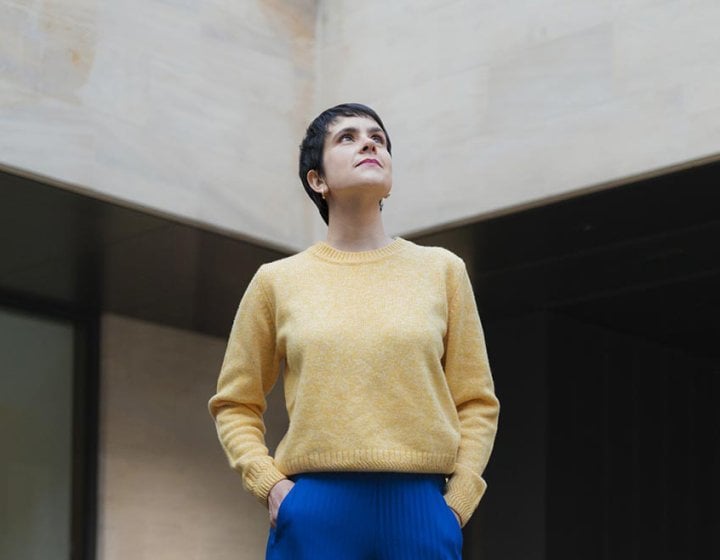
Jemima Olchawski, CEO of The Fawcett Society, Philosophy, Politics and Economics 2002-2005. ©PhilippaJames
Philippa James’ latest commission honours 50 years of women at Jesus College, Oxford
03 April 2025
Photography graduate Philippa James has create a portrait series celebrating 50 years of coeducation...
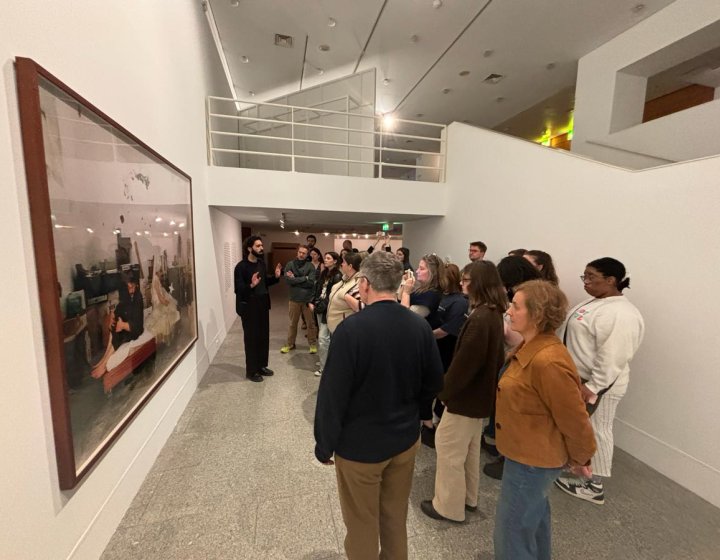
Photography students gather in Lisbon
27 March 2025
Students from across our Photography courses convened in Lisbon for an inspiring and culturally imme...
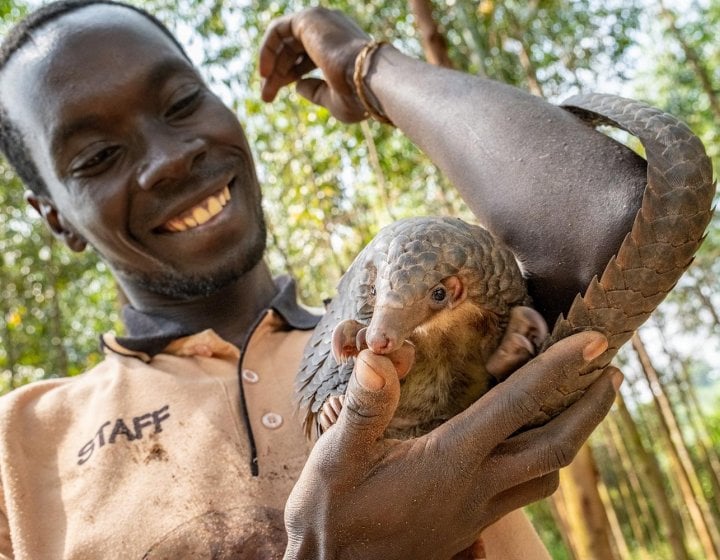
From the film, 'The Pangolin Man' by Ellie Stones
How conservation photography inspires change
03 March 2025
Today’s conservation photographers must be strong communicators as well as skilled image-makers.

Work by Holly Parsons
Redefining photography’s role in sustainability and social justice
24 February 2025
Discover the transformative potential of photography in driving positive change.
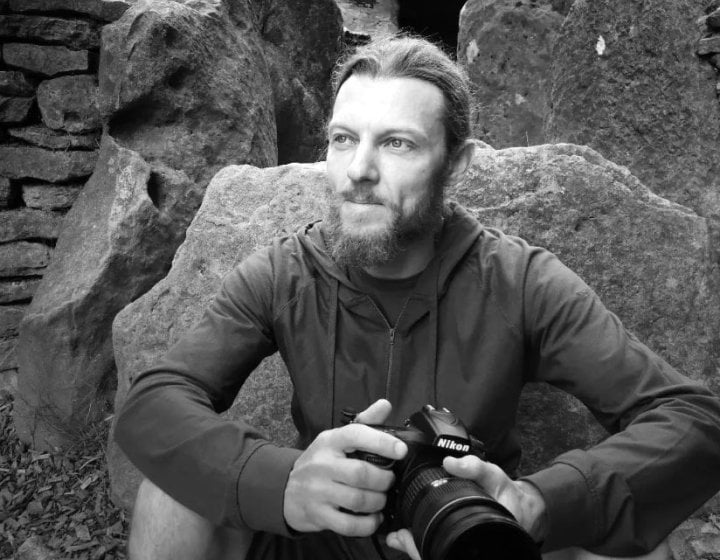
Dave Tipper on the lasting influence of an MA in Photography
19 February 2025
Photography graduate, Dave Tipper, reflects on how his studies have influenced both his photographic...
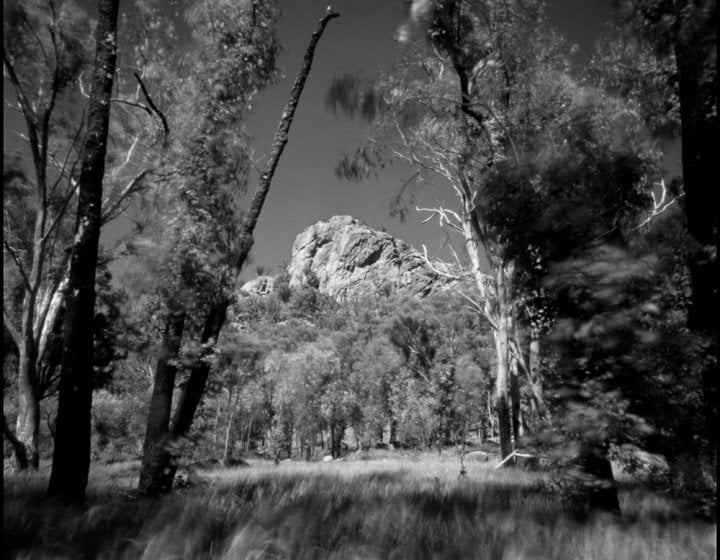
Bluff Rock, Ngoorabul Nation, 2024. Work by Glenn Porter
MA graduate’s photo series sheds light on Australia’s frontier wars
11 February 2025
Glenn Porter's Final Major Project has recently been published in an international criminology journ...
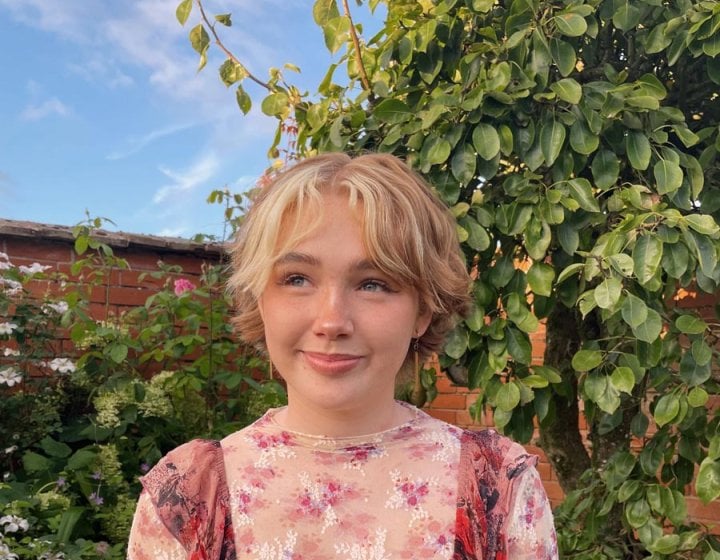
Photography graduate Niamh Shergold wins Portrait of Britain award
07 February 2025
Her winning image, ‘Maria & Connie’, is part of her final major project, ‘Lost & Found’.

Credit: Holly Parsons
Flexible, connected, and inspiring: Read what students think about studying Photography BA(Hons) (Online)
04 February 2025
We spoke to online Photography students to hear their thoughts on the course so far.

'Burning the Pain Away II' from the series 'White Picket Fence' by Emma Bennison
Student shines spotlight on women's healthcare through photography project
30 January 2025
Emma Bennison's project aims to highlight the challenges of living with endometriosis and PCOS.
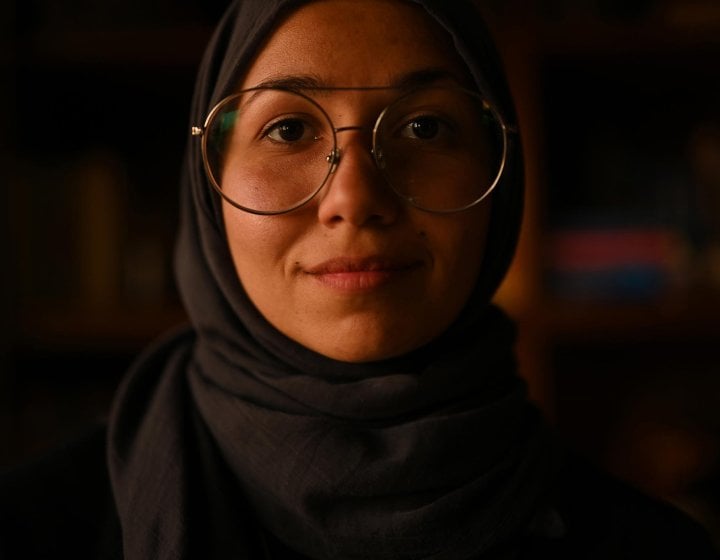
Rehab Eldalil on redefining representation in documentary photography
29 January 2025
Discover how Rehab’s journey at Falmouth helped shape her creative vision and propelled her remark...
Connect with our course community

Got questions? Chat to Claire, your Course Advisor
Get in touchLearning and support
You'll learn through a blend of recorded learning content, learning activities, guest talks, tasks and discussion forums, which you'll access via our dedicated virtual learning environment. This is also where you'll find all key documentation, get course announcements and access extensive learning resources.
Based on the total learning time for the Postgraduate online courses, an average study week can be up to 25 hours. As our online courses are intended to be flexible, the time required to study will vary based on the level of study, the module week, and individual learning pace.
You'll have weekly contact with faculty staff, and will be supported academically by Online Tutors throughout each module. If you need assistance with anything that isn't directly related to course material, a dedicated Student Advisor team will be on hand to help. You'll also have access to Falmouth University's excellent Employability Service.
Assessment methods
All assessments are taken and submitted online.
Assessment methods for the master's degree in Photography can typically include:
- Coursework assessment with no formal examinations
- Portfolio reviews
- Oral presentations
- Collaborations on live, client briefs
- Projects, individual reports and public presentations
- Dedicated easy-to-use virtual learning environment (VLE)
- Accessible online audio / visual content
- A Student Advisor to support you throughout your studies and access to our Student Support Services
- Access to our Employability Service
- 24/7 access to Falmouth's extensive online library of contextual books, journals and resources
- Access to online software tutorials at LinkedIn Learning
- Students' Union community
- Optional in-person events
- Invitation to attend alumni events
Although online students don't have access to on-campus facilities as part of the course, you can hire equipment and access facilities by paying a charge. Find out more about availability and prices here.
Your online study setup
To get the most out of your online studies with Falmouth, we recommend using a desktop or laptop computer with reliable internet access. This will enable you to fully experience our Virtual Learning Environment, which houses your course material, module videos and webinar recordings, discussion forums and more. Please note while a mobile phone or tablet can support you in your studies, they are not suitable as your primary means of engagement.
If you have any questions, our friendly course advisors are here to help.
Meet the team
Professional standards and practice are at the core of this online master’s course, which is delivered by a research-active academic team from the Institute of Photography at Falmouth University. There is a wide range of subject expertise within the team, and the ability to facilitate networking opportunities across the creative industries.
The course also benefits from the insight of photographers and other leading figures across the industry who contribute to our ongoing programme of guest lectures. Previous speakers include:
- Laia Abril
- Charlotte Cotton
- Geoff Dyer
- Julia Fullerton-Batten
- Nathan Jurgenson
- Kalpesh Lathigra
- Amak Mahmoodian
- Silvia Rosi
- Anastasia Samoylova
- Arpita Shah
- Vanessa Winship

Jesse Alexander
Course Leader, MA Photography (Online)
Jesse Alexander is a photographer, educator and writer on photography based in Somerset, England. Wh...

Dr Wendy McMurdo
Module leader, MA Photography
Wendy McMurdo is Module Leader for Final Project for the MA Photography at Falmouth. She is a widely...

Dr Steph Cosgrove
Senior Lecturer
Steph is a Senior Lecturer at our Institute of Photography and has worked at Falmouth University for...

Colin Pantall
Lecturer, Photography MA
Colin Pantall is a writer, educator and photographer based in Bath. He has written for a range of...

Georgia Metaxas
Lecturer & Module Leader, MA Photography (Online)
Georgia Metaxas is an artist and educator based in London, she is the Module Leader for Sustainable ...
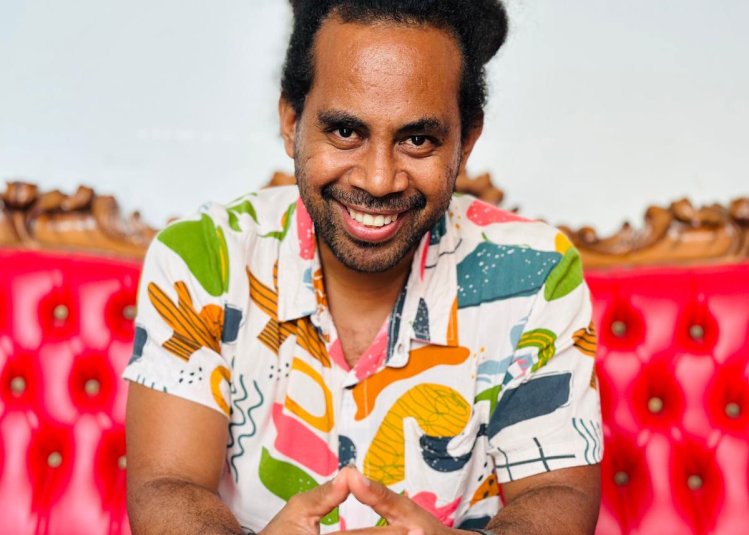
Studying a master’s in Film & TV as a Chevening Scholar
25 February 2026
After several years working as a filmmaker in Timor-Leste, Southeast Asia, Chevening Scholar Salvado...
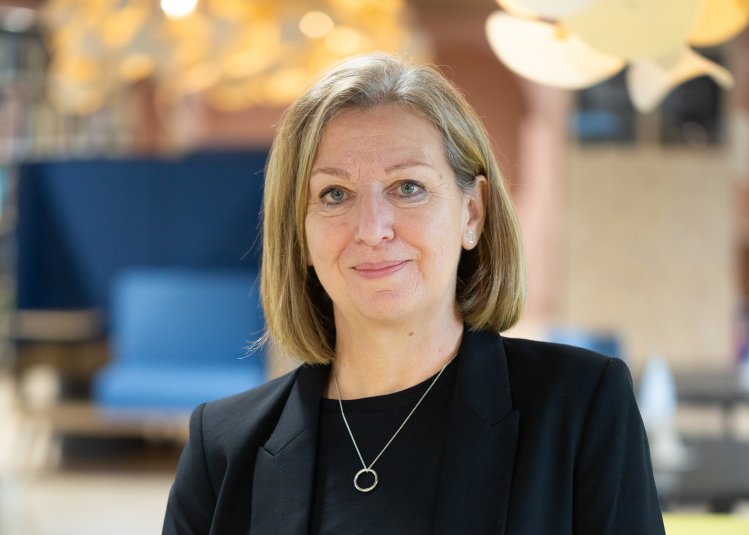
Vice-Chancellor announces retirement after 5 years of service at Falmouth University
24 February 2026
Professor Emma Hunt, Vice Chancellor and Chief Executive, has announced her intention to retire in e...
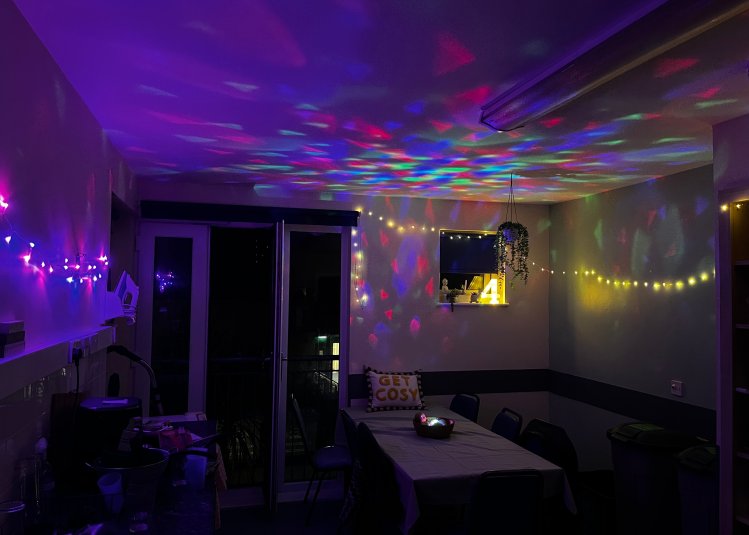
Moving into Glasney Student Village as an international student
24 February 2026
Alexandro, reflects on his experience of living in Glasney as an international student.

Meet your Course Leader, Jesse Alexander
We chatted to Course Leader Jesse Alexander about his rich industry experience, his dedication to online learning and his faith in the future of photography.
Read moreSome members of staff only teach on specific modules, and your course might not feature every staff member who teaches on the course.
Careers
Our graduates use the skills, network, and the portfolio they develop during the Photography MA to advance their careers in various ways: winning awards, commissions, bursaries and residencies; gaining new commercial clients; and securing permanent roles as photographers within industry.
You could go into roles such as:
- Self-employed photographic practitioner (e.g. social, commercial, editorial)
- Employed photographic practitioner and/or management (press, studio, industrial, retouching)
- Senior technical roles in industry (e.g. technical instruction, laboratory, retail)
- Senior roles within publishing (e.g. picture research and editing, management)
- Senior roles in arts administration, arts management, heritage and outreach
- Curatorship, art direction, gallerists
- Teaching, workshops and educational development roles
- Writing, criticism and arts communication
As a postgraduate course, most students will already be working with photography or media in some professional capacity and make use of the course to progress or diversify their careers in the photography industry. As an internationally recognised master’s degree, the award will make roles and careers outside of the creative industries accessible, too.
Some graduates explore careers in academia and further study at doctoral level.
While the course is designed with the career progression of its graduates in mind, the programme welcomes those who are taking the course primarily for personal development
In addition to the guidance offered by our tutors, you can also access our employability service throughout your studies, and for up to five years following graduation. Our expert team will help you identify potential opportunities in the UK or internationally, prepare for job interviews, advise you on starting up your own business, and more.

Meet graduate Rehab Eldalil
Discover how the Photography MA course helped shape Rehab Eldalil’s creative vision and launch her extraordinary career as an award-winning documentary photographer.
Read the interviewHow to apply
Speak to us about the course
If you'd like to talk to an Advisor about this course or your application, get in touch with us via the form below.
Apply now
Ready to apply for postgraduate study? We have three start dates a year: January / May / September. Select the start date you'd like to apply for in the drop-downs below and then click the relevant apply button to begin.
You can apply to begin your studies in May 2026 by selecting the relevant course route below:
You can apply to begin your studies in September 2026 by selecting the relevant course route below:
You can apply to begin your studies in January 2027 by selecting the relevant course route below:

How to apply for our Online Degrees
Find out moreQualifications
An honours degree or Level 6 equivalent qualification is desirable. However, candidates without a degree or formal qualification are still encouraged to apply. If you'd like to discuss our entry requirements, speak to an advisor.
Portfolio
A digital portfolio of your current photographic practice. The portfolio should indicate both your technical aptitude and the quality and sophistication of your practice.
You shouldn’t attempt to encompass a range of styles and genres of photography, but rather try to give the admissions team a sense of your practice specialisms and your interests as a practitioner.
You should title or briefly caption each image in your portfolio, explaining - if necessary - how the image is indicative of your practice and why you have selected it.
If you'd like to talk to us about your application, get in touch.
If English is not your first language you will need to meet the same standard which is equivalent to the IELTS Academic 6.5 overall score, with at least 5.5 in Reading, Writing, and Listening, and a minimum of 6.0 in speaking.
We also accept a range of other recognised English language qualifications. You can visit our English Language Requirements page for more information.
For more information about equivalent international qualifications or English language requirements please contact our friendly Course Advisors.
This course has three intakes per year: January, May and September.
| Academic start date* | Application deadline | Early Bird Discount deadline |
|---|---|---|
| 26 May 2026 | 6 May 2026 | 30 March 2026 |
| 21 September 2026 | 7 September 2026 | 3 August 2026 |
| 18 January 2027 | 8 January 2027 | 23 November 2026 |
Please note:
*Virtual Welcome Week begins the week before the academic start date. During this time, our Student Advisor team will host Welcome Webinars and be in touch with practical information on how to study online.
An Early Bird discount is available for early applications. Currently the scheme offers up to £600 off MA tuition fees: £300 if you apply by the Early Bird discount submission deadline, and a further £300 off your tuition fees if you receive an offer and within two weeks you accept the place and pay the acceptance fee. Both these payments would be applied to your final fee instalment. Please note the discount amount is subject to change for future intakes.
| Early Bird discount submission deadline | Academic start date |
|---|---|
| 24 November 2025 | 19 January 2026 |
| 30 March 2026 | 26 May 2026 |
| 3 August 2026 | 21 September 2026 |
To discuss all our discount opportunities, contact an advisor.
Fees, costs & funding
Tuition fees
At Falmouth University, you can choose to pay your tuition fees for our online postgraduate courses up front, or in instalments.
MA/MSc course (2 years part time)
- Total fee £12,150 (incl. acceptance fee)
- Two instalments of £6,075, paid at the start of each year, or six instalments of £2,025 at the start of each study block.
PGDip course
- Total fee £7,921 (incl. acceptance fee)
- Four instalments of £1,980.25 at the start of each study block.
Your acceptance fee is deducted from your first instalment. Any discounts you have been awarded are deducted from your final instalment(s).
At Falmouth University, you can choose to pay your tuition fees for our online postgraduate courses up front, or in instalments.
MA/MSc course (2 years part time)
- Total fee £12,150 (incl. acceptance fee)
- Two instalments of £6,075, paid at the start of each year, or six instalments of £2,025 at the start of each study block.
PGDip course
- Total fee £7,921 (incl. acceptance fee)
- Four instalments of £1,980.25 at the start of each study block.
Your acceptance fee is deducted from your first instalment. Any discounts you have been awarded are deducted from your final instalment(s).
Tuition fees are set annually and are subject to review each year. The University may therefore raise tuition fees in the second or subsequent years of a course, in line with inflation and/or the maximum permitted by law or Government policy. Students will be notified of any changes as soon as possible.
The figures above don't include accommodation and living costs
As part of studying MA Photography Online you will require:
Laptop/computer
You will need a laptop or computer with a webcam, microphone and speakers/headphones. You'll also need a good internet connection or a data allowance capable of supporting frequent video meetings and streaming.
Resources and materials
Although all assignments will be submitted digitally, you will need to manage your own resources and materials, reflecting the requirements of your own creative practice.
This will depend on the technology, equipment and consumables that you use for your practice, or would like to experiment with. These will vary from student to student, but you should be prepared to produce and experiment with images on a weekly basis throughout the course.
Photographic Equipment
Most students enter the course with an existing camera system, which is usually sufficient for their initial needs. However, the course strongly encourages you to experiment with new materials and there are optional face-to-face sessions that make use of specialist equipment.
There is no minimum technical requirement for this course. The camera systems and technologies you use will depend entirely on your individual practice and the resources available to you.
While many students work with digital SLR or mirrorless systems, others explore film in various formats or camera-less image-making techniques. The course encourages sustainable approaches to equipment use, including purchasing second-hand gear or borrowing whenever possible.
Workspace
We recommend, where possible, a dedicated workspace where you can complete coursework and participate in live meetings without being disturbed.
This does not need to be a dedicated, hired studio space; many students work from a quiet room in their homes, home offices or a communal workspace.
Adobe Creative Cloud
Depending on the mediums you choose to work in, you may require access to Adobe Creative Cloud. You may be eligible for discounted licenses through Adobe's education pricing and Falmouth University seeks to provide further discounts when possible. If any discounts are available, we will communicate these to you.
For more information please visit Adobe Creative Cloud.
Optional in-person events
You will be expected to cover your own travel, accommodation and subsistence costs to attend these events. Where ticketed activities are part of the event, such as festivals and fairs, you will also need to meet these costs. We advise a budget of at least £500 for each in-person event, although this will vary depending on where you are based.
There were no additional costs recommended for students joining this course in September 2025.

Early Bird discount available
Request informationFunding and scholarships for postgraduate students
There are loans, scholarships, awards, graduate discounts and alternative funding sources for domestic and international postgraduate students. Read about them on our Postgraduate Funding page.
Find out about funding
Ask a student
What better way to find out about life at Falmouth University than by asking our current students?
From course details and academic support, to the social scene and settling in, our students are ready and available to answer any questions you might have. Simply set up your account, send them a question and they'll get back to you within 24 hours.
Speak to an advisor
Do you have questions about the course or studying online with Falmouth? Fill in our simple online form and we'll get in touch to support your application journey.
Submit form